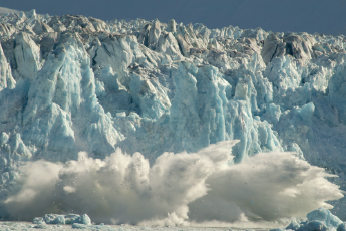Global Warming and the Story of the Frog in the Pot
The frog is thrown into a pot of hot, but not boiling, water. The frog could jump out, but it does not. Soon enough the frog is cooked. It is too late. Nowhere is this story more relevant than in regard to global warming. It is not too late for us to get out of the pot, but so far we as humanity have not decided to jump.
Is it because we see the consequences as too far in the future? Do we believe there is some technological fix that can come in and save us at the last minute? Have we bought into the argument that we need to concentrate on making our society more “productive” now, fixing our economy and creating more jobs at present, and worry about climate change later?
Let’s start with what is already happening and the present effects of global warming. The science is clear. Greenhouse gases act like a blanket around the earth, trapping energy in the atmosphere and causing temperatures to rise every year. Most of this is caused by human intervention: toxic emissions from vehicles, burning of coal, gas and oil from plants, businesses and homes. Almost all scientists agree.
The following effects are happening right now.
- Severe droughts in Sub Saharan Africa and in the Middle East have caused crop failures and resources shortages that speeded up the deaths of tens of thousands. Millions more have become “climate refugees,” risking life and welfare to escape to other countries, which do not want them. Most of these people are poor farmers who can no longer farm in their home country.
- Sea levels are rising so dramatically that whole island nations in the Pacific and Indian Oceans inhabited by poor indigenous people will disappear in this century. Meanwhile, American cities like Miami, New Orleans, Charleston and New York will lose most of their land to encroaching sea water.
- There is a marked increase in the temperature and ocean acidification that is causing the destruction of much of the Great Barrier Reef in Australia and damage to other marine ecosystems
- Land animals are also harmed due to lack of food and water, dramatically changing their migratory patterns. Most people know about the dangers to polar bears but that is just, shall we say, the tip of the iceberg, which, as we know, are melting at a dangerously accelerated rate and raising the sea levels.
- Have you noticed an increase in extreme weather patterns — hurricanes, blizzards, thunderstorms, tornados, heat waves — occurring more frequently with greater intensity? These phenomena do not occur all the time in all locations, but they are certainly more and more intense.
The pot is heating up, but we can still jump out.

